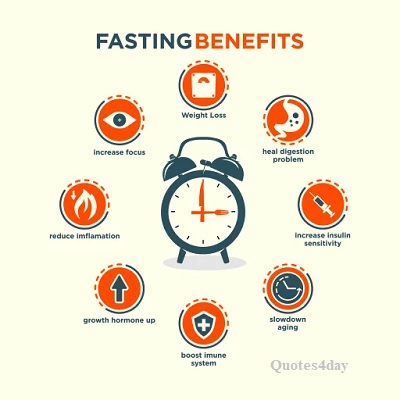Our body works 24/7, without holidays and weekends. And it is especially difficult for him when we are resting: after a hearty family dinner or barbecue at a picnic. Unloading days help to arrange a “day off” for the body. How and what to eat during unloading, how often, and on what days to arrange it.

What is a Fasting Day?
A fasting day is a day when you eat so that the body uses a minimum of resources to process food. For example, fats and simple carbohydrates (red meat, bread, sweets, dairy products, and alcohol) are excluded from the diet. It is necessary to reduce the diet to 800-1400 kcal, drink plenty of water and eat small portions.
This helps to bring the body into tone, and start metabolic processes, if, for example, in losing weight, a plateau effect has occurred. Also, those who practice fasting days say that it helps them to feel light, cheerful, and energized.
A large amount of fluid stimulates the kidneys, which are responsible for the elimination of toxins. Fiber-rich foods improve bowel function. And in itself, a low-calorie diet helps to get used to reduced amounts of food and not overeat on ordinary days.
Important. The unloading process must be short. This is not extreme fasting and not a mono diet lasting a week. The ideal scheme is to eat healthy and healthy on an ongoing basis, then no fasting days will be needed. And if necessary, you can arrange unloading no more than one day a week.
Benefits of Fasting for the Body
The diet of the fasting day should correspond to your current state of health. For example, for people with gastrointestinal problems, instead of fresh fruits, vegetables, and berries, heat-treated vegetables and mashed soups are recommended. Therefore, if you have any health problems, you should consult a doctor before unloading.
When you can not practice fasting days on your own:
- With diseases of the digestive tract, liver, and kidneys;
- With diabetes;
- After severe illness;
- During pregnancy and breastfeeding.

It is also undesirable to carry out unloading during menstruation and simply when you feel unwell. In any case, if in doubt, it is always best to talk to your doctor.
Diet on a fasting day
The correct fasting day scheme includes not only diet correction but also rest from work, cleansing from bad thoughts, attention to yourself, and just relaxation.
As for the menu, you can focus on fresh and thermally processed vegetables:
- Broccoli;
- Celery
- Cauliflower;
- Zucchini;
- Sweet pepper, etc.
They are rich in fiber and help to better cleanse the body.
Also on fasting days, it is important to consume protein:
- Beans;
- Tofu cheese;
- Asparagus;
- Fish;
- Eggs;
- Seafood.
Choosing the Right Foods
Ideally, it should be, for example, a day off, when you don’t have to rush anywhere and do a lot of tasks. Weekdays are also suitable – when you are busy, you simply will not have time to think about an extra snack. But it is better, of course, to choose days that are not too busy with business.
Visit: Top 10 Iron-Rich Foods You Should Include in Your Diet
Among the shortcomings of fasting days, first of all, is that they are not easy from a psychological point of view. Especially for those who previously allowed themselves excesses in the diet. Therefore, it is not recommended to arrange unloading immediately after the holidays and feasts. It is better to try to adjust your diet for a few days in order to return to the usual mode, and then unload.
Tips for a Successful Fasting Day
To unload only benefit, follow some rules:
- On the eve of the fasting day and immediately after, do not overload the body with heavy high-calorie foods, do not overeat;
- On a fasting day, drink more water than usual, avoid stressful situations and physical overstrain;
- Do not get carried away with tonic drinks – it is better to replace strong tea and coffee with herbal teas, pure or fruit water;
- You can not drink a laxative or diuretic – this will become unnecessary stress.

If your daily diet is balanced, enough attention is paid to physical activity, then you do not need a fasting day. Unloading is useful when the body needs a break from nutritional errors: too heavy food, lunches and dinners in one evening meal, etc. The main thing is not to resort to this technique too often and choose a mode that is comfortable for yourself.
FAQs
Q: Can I drink water or other beverages during a fasting day?
A: Yes, staying hydrated is essential during a fasting day. Water, herbal tea, and other non-caloric beverages are allowed and encouraged.
Q: Can I exercise or work out on a fasting day?
A: Engaging in light physical activity, such as walking or gentle yoga, is generally safe and can even be beneficial during a fasting day. However, intense workouts or strenuous activities should be avoided, as they may cause fatigue or dizziness.
Q: Will fasting days slow down my metabolism?
A: When done correctly, fasting days can actually boost your metabolism. However, it’s important to maintain a balanced approach and not restrict calories excessively, as this can have a negative impact on your metabolic rate.
Q: Can I continue taking my medications or supplements on a fasting day?
A: It’s crucial to consult with your healthcare provider regarding your medications and supplements before incorporating fasting days into your routine. Some medications may need to be taken with food, so it’s important to follow professional advice.
Q: Are fasting days suitable for everyone?
A: Fasting days may not be suitable for everyone, especially individuals with certain medical conditions, pregnant women, nursing mothers, and those with a history of eating disorders. It’s important to consult with a healthcare professional before starting any fasting regimen.


